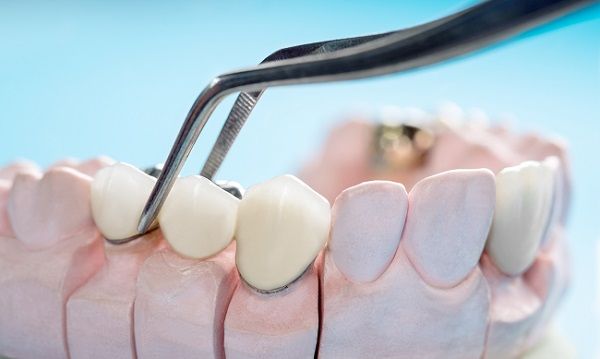Dental Bridges for Children: Their Purpose and Application
Dental Implants Solutions
Dental bridges are a standard dental treatment that replaces missing teeth, improving oral function and aesthetics. Dental bridges are designed for children to suit their unique dental needs, restoring their smiles and maintaining oral health. As a parent, it's important to understand the basics of dental bridges for children to make informed decisions about your child's oral healthcare. You can confidently navigate the decision-making process by better understanding dental bridges for children.
Moreover, you can ensure your child's best oral health outcomes. This guide will delve into the overview of dental bridges for children, including common indications, types of bridges, treatment processes, and aftercare.
When Are Dental Bridges Used in Children?
Dentists recommend dental bridges for children in various situations. For example, they have lost one or more teeth due to tooth decay, trauma, or congenital anomalies. Common indications for dental bridges in children include:
- Premature loss of primary (baby) teeth: If a child loses a primary tooth before the permanent tooth is ready to erupt, a dental bridge can help. It maintains the space and prevents orthodontic problems in the future.
- Congenital missing teeth: Some children may be born with missing teeth (congenitally missing teeth), which can affect their bite and oral function. Dental bridges can replace missing teeth and proper dental alignment.
- Traumatic tooth loss: Accidents or injuries can result in the loss of permanent teeth in children. Dental bridges can replace these missing teeth and restore the child's ability to bite, chew, and speak properly.
- Severe tooth decay or dental disease: Extensive tooth decay or dental disease in children may result in the need to extract one or more teeth. Dental bridges can restore missing teeth and restore oral function.
It's important to note that the decision to use dental bridges in children should be made on a case-by-case basis. A thorough evaluation by an experienced dental professional is important to determine the most appropriate treatment approach for each child's unique needs.
Types of Dental Bridges for Children: Traditional vs. Maryland Bridges
Traditional bridges: Traditional dental bridges are a commonly used type of dental restoration. They involve using dental crowns on the adjacent teeth to support a false tooth (called a pontic) that fills the gap left by the missing tooth. The crowns are typically cemented onto the natural teeth, providing stability and support for the bridge. Traditional bridges are a durable and long-lasting option for replacing missing teeth. They are suitable for people of all ages, including children.
Maryland bridges: Maryland bridges, also known as resin-bonded or adhesive bridges, are a conservative option for children who have lost a single front tooth. They involve using a metal or porcelain framework bonded to the back of the adjacent teeth with a resin or composite material, eliminating the need for crowns. Maryland bridges are less invasive and require less tooth reduction than traditional bridges. This makes them a popular choice for children.
Both traditional and Maryland bridges have pros and cons, and the choice between them relies on different factors, including the child's age, oral health, and the location of the missing tooth. A thorough consultation with an experienced dentist will help determine the most suitable type of dental bridge for a child's specific needs.

Benefits of Dental Bridges for Children
Dental bridges can offer numerous benefits to children who have lost one or more teeth. By restoring both function and aesthetics, dental bridges can significantly improve a child's oral health and overall well-being.
- Restored function: Dental bridges for children can regain their ability to bite, chew, and speak correctly. This allows children to enjoy a healthy diet and maintain good nutrition, supporting their growth and development.
- Maintained dental alignment: Dental bridges help to maintain proper dental alignment by filling the gap left by missing teeth. This prevents adjacent teeth from shifting into the space, which can cause orthodontic issues in the future. Maintaining dental alignment can also promote proper jaw growth and development in children.
- Enhanced aesthetics: Dental bridges can improve the smile by filling in gaps and restoring a natural appearance. This can boost their self-esteem and confidence, allowing them to smile and interact with others more comfortably.
- Durable and long-lasting: Dental bridges are created from high-quality materials, such as porcelain or metal, which can withstand the rigors of daily oral functions in children. Dental bridges can last long with proper care and maintenance, providing a reliable solution for replacing missing teeth in children.
- Conservative treatment option: Depending on the type of dental bridge chosen, such as Maryland bridges, they can be a traditional treatment option that requires minimal tooth reduction compared to other options. This can help preserve the natural tooth structure of adjacent teeth, making it a more conservative approach for children.
- Improved oral health: Dental bridges can help improve a child's oral health. And help to restore their ability to clean and maintain their teeth and gums properly. This can minimize the risk of dental issues, such as tooth decay and gum disease. Moreover, it promotes optimal oral hygiene habits in children.
Preparing Your Child for Dental Bridge Placement: What to Expect
Here's what you can expect when your child undergoes dental bridge placement:
- Consultation and examination with a pediatric dentist or dental professional.
- Anesthesia options were discussed with you and your child.
- Tooth preparation may involve removing a small amount of enamel from adjacent teeth for traditional bridges or minimal tooth reduction for Maryland bridges.
- Impressions are taken to make a customized dental bridge.
- Temporary bridge placement while the permanent bridge is being made.
- Placement of the permanent dental bridge, carefully bonded onto the prepared teeth or framework of the Maryland bridge.
- Post-placement care instructions, including oral hygiene practices, dietary restrictions, and follow-up appointments, were provided.
- Regular monitoring and maintenance to ensure the dental bridge remains functional and well-maintained.
Preparing your child for dental bridge placement and working closely with an experienced dentist will ensure a smooth experience and optimal outcomes for your child's oral health.
Aftercare for Dental Bridges in Children: Tips for Long-Term Success
Once your child has received a dental bridge, proper aftercare is crucial to ensure its long-term success. Here are some tips for maintaining the health and function of your child's dental bridge:
Oral hygiene practices: Encourage your children to brush their teeth daily with fluoride toothpaste and floss between the teeth and around the dental bridge. Good dental hygiene will help prevent plaque buildup and maintain healthy gums, which is essential for the dental bridge's longevity.

Dietary considerations: Avoid giving your child sticky or hard-to-crush foods that could damage the dental bridge. Please encourage them to eat a balanced, nutrient-rich diet, promoting oral health.
Regular dental check-ups: Schedule routine check-ups with your child's pediatric dentist or dental professional to monitor the condition of the dental bridge and ensure it remains in good shape. Any issues, such as loose or chipped dental bridges, should be addressed promptly to avoid further damage.
Avoid harmful habits: Discourage your child from biting on hard objects, such as pens or pencils, as this can put excessive pressure on the dental bridge and lead to damage. If your child grins or clenches teeth, speak with your dentist about possible solutions, such as a mouthguard, to protect the dental bridge.
Educate your child: Help your child understand the significance of maintaining good oral hygiene and avoiding harmful habits that can affect the dental bridge. Teach them how to properly care for their dental bridge and why it's essential for oral health.
Follow the dentist's recommendations: Your dentist may provide specific aftercare instructions based on their unique needs. It's crucial to follow these recommendations, including attending any recommended follow-up appointments or professional cleanings. These measures help to ensure the long-term success of the dental bridge.
Risks and Complications of Dental Bridges for Children
Dental bridges for children, while generally safe and effective, can have potential risks and complications. Here are some common ones to be aware of:
- Tooth Sensitivity
- Gum irritation or inflammation
- Dental bridge damage
- Decay or gum disease
- Bite misalignment
- Allergic reactions
Regular monitoring and prompt communication with your child's dentist can help identify and address these issues early on. As a result, it ensures the long-term success of your child's dental bridge.
Conclusion
In conclusion, dental bridges can be beneficial for restoring missing teeth in children. However, awareness of this dental procedure's potential risks and complications is important. By closely monitoring your child's dental bridge and keeping good oral hygiene practices, you can help minimize the risks and ensure the long-term success of the dental bridge. Moreover, if you have concerns or notice any issues, don't hesitate to consult your child's dentist for appropriate evaluation and management. Dental bridges can help to gain functional and aesthetic benefits for your child's oral health with proper care and attention.
Contact your Walnut Creek dentist, Dr Massood Darvishzadeh, DDS at Dental Implant Solutions, to learn more about Dental Bridges for Children: their purpose and application.
Resource:
The pros and cons of dental bridges: Is it the right choice for your smile?
*This media/content or any other on this website does not prescribe, recommend, or prevent any treatment or procedure. Therefore, we highly suggest that you get the advice of a qualified dentist or other medical practitioners regarding your specific dental condition*
Subscribe To Our Newsletter
Get Updates And Learn From The Best
More To Explore



CONTACT US
Massood Darvishzadeh, DDS
2021 Mt Diablo Blvd., Suite 100A
Walnut Creek, CA 94596
(925) 939-2600info@dentalimplantsolutions.net